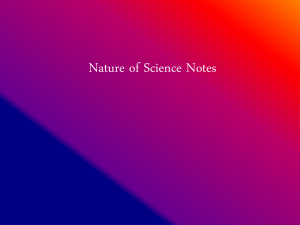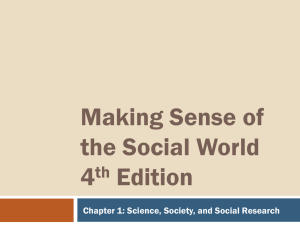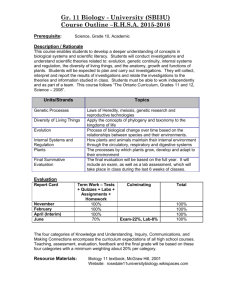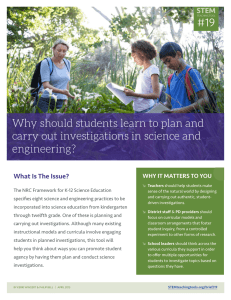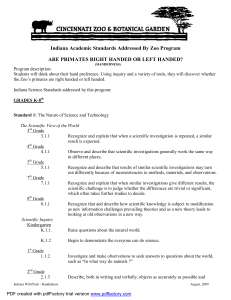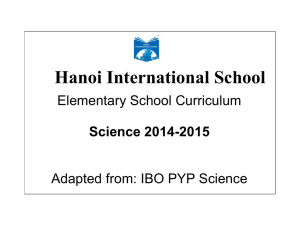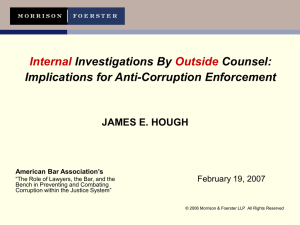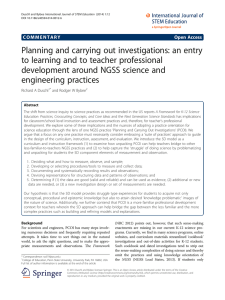click here - TeacherWeb
advertisement
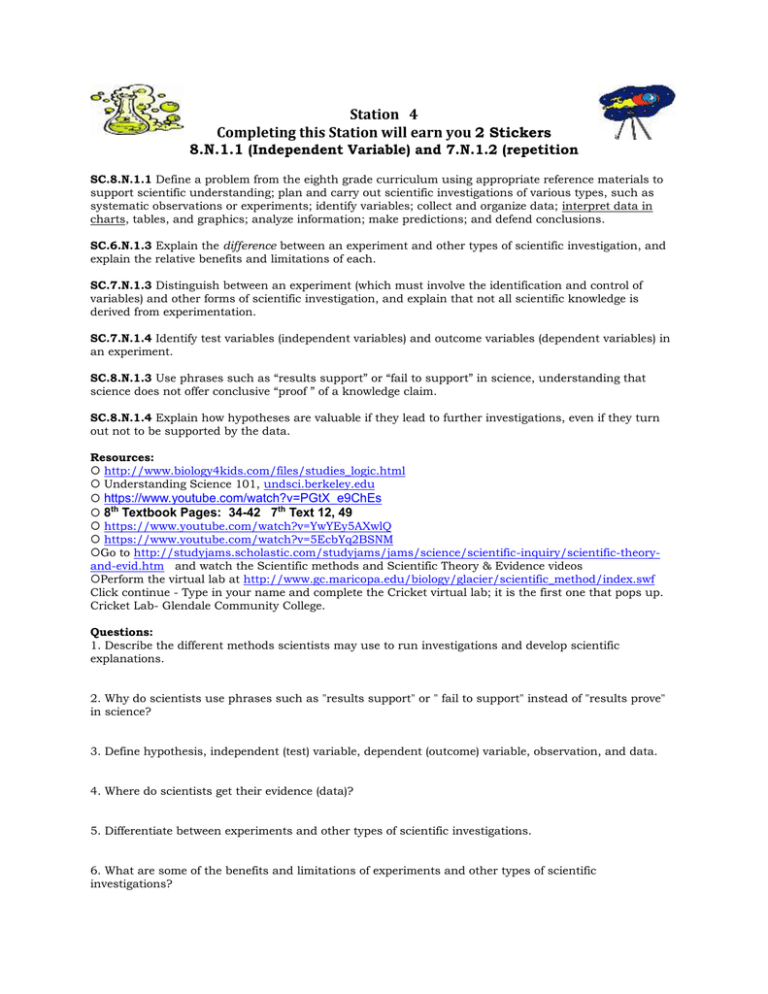
Station 4 Completing this Station will earn you 2 Stickers 8.N.1.1 (Independent Variable) and 7.N.1.2 (repetition SC.8.N.1.1 Define a problem from the eighth grade curriculum using appropriate reference materials to support scientific understanding; plan and carry out scientific investigations of various types, such as systematic observations or experiments; identify variables; collect and organize data; interpret data in charts, tables, and graphics; analyze information; make predictions; and defend conclusions. SC.6.N.1.3 Explain the difference between an experiment and other types of scientific investigation, and explain the relative benefits and limitations of each. SC.7.N.1.3 Distinguish between an experiment (which must involve the identification and control of variables) and other forms of scientific investigation, and explain that not all scientific knowledge is derived from experimentation. SC.7.N.1.4 Identify test variables (independent variables) and outcome variables (dependent variables) in an experiment. SC.8.N.1.3 Use phrases such as “results support” or “fail to support” in science, understanding that science does not offer conclusive “proof ” of a knowledge claim. SC.8.N.1.4 Explain how hypotheses are valuable if they lead to further investigations, even if they turn out not to be supported by the data. Resources: http://www.biology4kids.com/files/studies_logic.html Understanding Science 101, undsci.berkeley.edu https://www.youtube.com/watch?v=PGtX_e9ChEs 8th Textbook Pages: 34-42 7th Text 12, 49 https://www.youtube.com/watch?v=YwYEy5AXwlQ https://www.youtube.com/watch?v=5EcbYq2BSNM Go to http://studyjams.scholastic.com/studyjams/jams/science/scientific-inquiry/scientific-theoryand-evid.htm and watch the Scientific methods and Scientific Theory & Evidence videos Perform the virtual lab at http://www.gc.maricopa.edu/biology/glacier/scientific_method/index.swf Click continue - Type in your name and complete the Cricket virtual lab; it is the first one that pops up. Cricket Lab- Glendale Community College. Questions: 1. Describe the different methods scientists may use to run investigations and develop scientific explanations. 2. Why do scientists use phrases such as "results support" or " fail to support" instead of "results prove" in science? 3. Define hypothesis, independent (test) variable, dependent (outcome) variable, observation, and data. 4. Where do scientists get their evidence (data)? 5. Differentiate between experiments and other types of scientific investigations. 6. What are some of the benefits and limitations of experiments and other types of scientific investigations?
